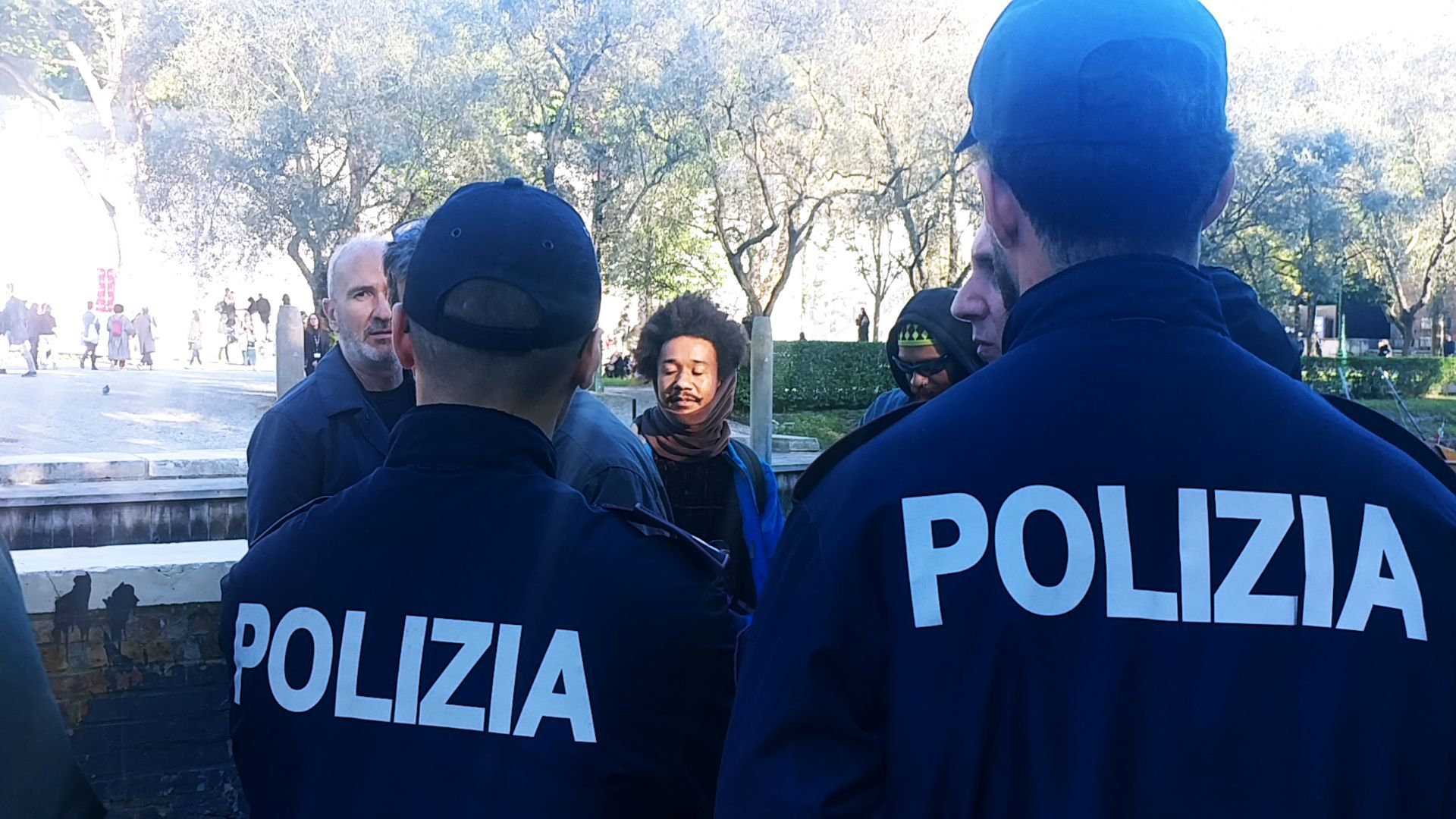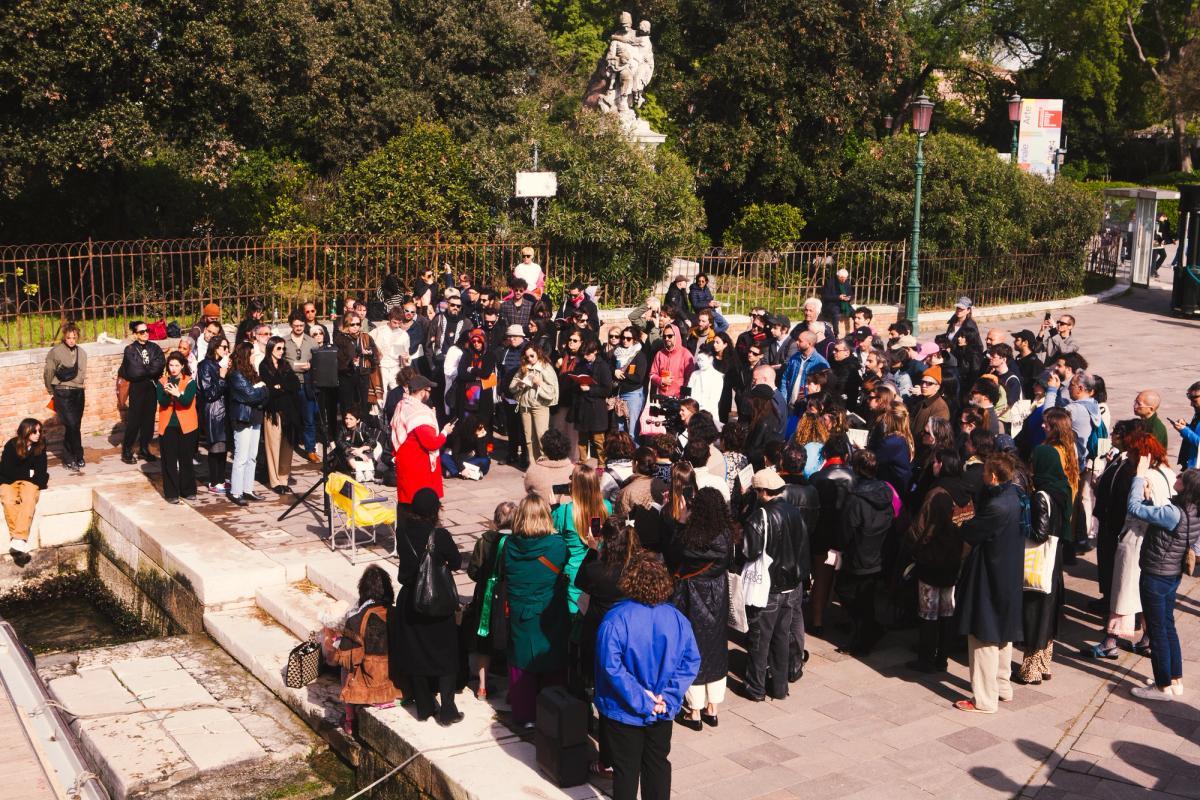Pro-Palestine protests at the 60th Venice Biennale continued beyond 16 April, the first preview day, when around 70 people rallied outside the US, German, UK and Israel pavilions to demonstrate against the military campaign in Gaza.
In the afternoons of 18 and 19 April, hundreds of people gathered near the Giardini vaporetto stop for Freedom Boat, a reading from the booklet Gaza Reader: Vol.1 Poetry. Organisers of the event say that notable participants included the designer Michele Lamy and the actress Sophie Hunter, and that numbers peaked at 350 to 400 on the first day. The artists Rosalind Nashashibi and Nicole Eisenman designed flags for the event.
The organisers of Freedom Boat—Artists Against Apartheid UK, Bidoun, the Kamel Lazaar Foundation and Writers Against the War on Gaza—plan to make the Gaza Reader available online soon, and are working on follow-up volumes two and three, respectively dedicated to prose and international solidarity. The readers included “artists from the Biennale, writers, curators, collectors…but many came to us and asked to take part. The two days felt terrific and poignant, a pause in the middle of a big frenzied event,” the organisers say.

The protester surrounded by Italian police © The Art Newspaper
Meanwhile, also on the afternoon of 19 April, within the Giardini grounds, a protester wrote with a water-soluble marker “Free Palestine” on the wall of the closed Israel Pavilion. He wore one of the banners that have been appearing around the biennial declaring in Spanish “No es una guerra, es un genocidio. Todos los pueblos del Sur somos Palestina” (“It’s not a war, it’s a genocide. All communities of the South are Palestinian”). He held up the markers he used, shouting: “very water soluable!” in Spanish as three security officers, confirmed by the Biennale as military personnel, in camouflage uniforms carrying guns and batons, already stationed outside the pavilion, encircled him. He then led a small crowd in pro-Palestine and anti-war songs, chants and call-and-response slogans, while the soldiers tried to halt any photography and filming.
After a few minutes, a larger team of Italian police—some uniformed, some not—arrived and moved the protester towards the back of the pavilion away from public view. Several of the bystanders, including this reporter who was at the scene by chance, followed out of concern for how the police might treat the protester. Police demanded this reporter stopped filming, claiming that it was illegal to film the police in Italy. She was held and had her passport temporarily taken.
An Italian art student who observed the incident, but does not wish to be named, said: "The protester spoke English and Spanish but the police officers were not able to express themselves well in English. I then translated to the protester that the police would take them to another part of the Giardini to 'fill in some formalities'. So the protester left with his two friends and about five officers."
The Biennale tells The Art Newspaper that the protester was, “identified and released immediately after identification. The graffiti triggered identification. No other consequences or actions followed by the authorities." The Biennale specifies that there have been several other small pro-Palestine protests outside the Israel and US pavilions since opening, "but with no damages to things or people.”
“Safety does not forbid free expression by the public,” the Biennale stresses, and the organisation does not employ any private security or guards. Italian soldiers outside the Israeli as well as Russian pavilions “have been placed there by the authorities for security reasons.”
It continues: “La Biennale does not forbid filming in any way and in any instance,” but “if the police are inside the exhibition venues, they are the ones who manage situations and areas.” It is “absolutely not" Venice Biennale policy to detain protesters, its says.


